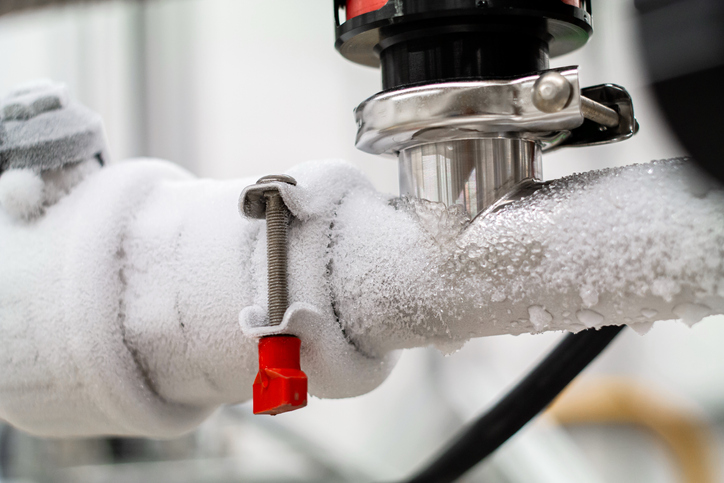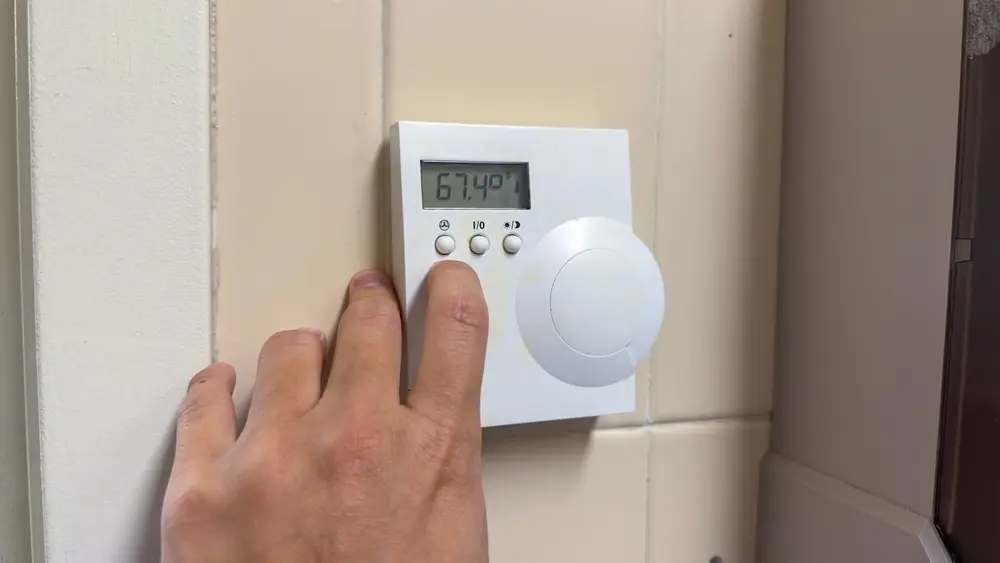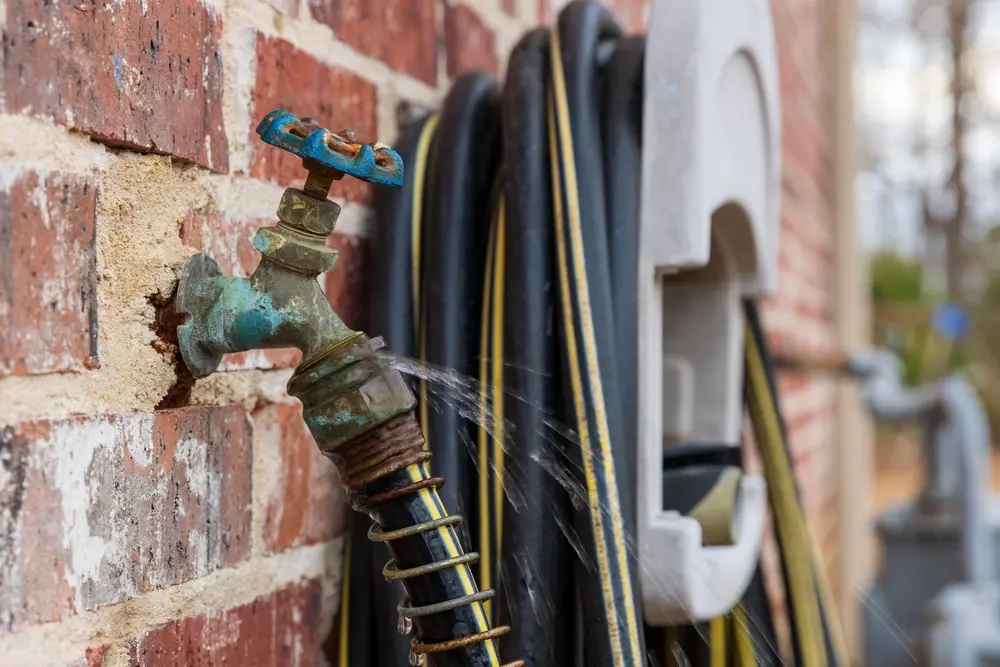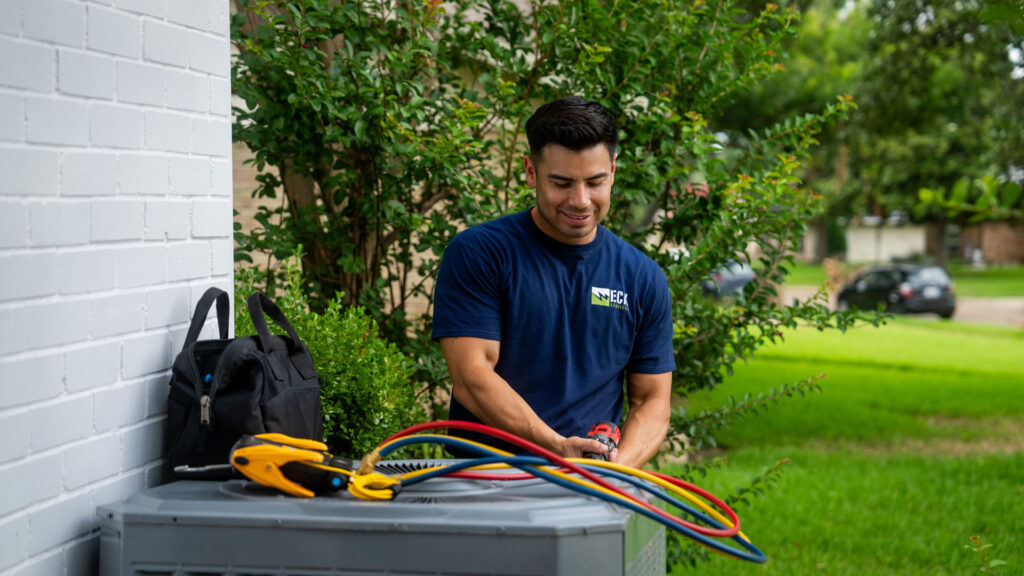Blog
How To Stop Your Pipes From Freezing

One of the worst things that can happen to you in the winter is to have your pipes freeze over. If you've been lucky enough to avoid a frozen pipe, you may not realize the high cost that comes with the incident. In addition to needing to call plumbers in Wichita, KS for immediate help, you also could have to call someone for water damage repair. To protect your home and your wallet, you need to take steps to keep your plumbing in good shape. Follow these tips and learn how to protect your pipes this winter.
Keep Your Garage Door Closed
Although you might enjoy spending time in your garage with the cool air blowing in, this could be your downfall. Water supply lines could be in your garage, and the cold air has the potential to freeze the lines. The longer you keep your garage door open, the greater the risk to your pipes.
In the winter, the unheated areas of your home are the most vulnerable to burst pipes. This means your garage is a significant area of concern unless you're lucky enough to have a heated garage. Keep your garage door shut as much as possible, and make sure the door has a tight seal. If too much cold air enters your garage, your pipes could be in danger.
Drain Your Garden Hoses
Your exterior pipes have almost no protection from the environment. For that reason, they are likely to freeze over in the winter. One way to prevent a problem is to disconnect your water hose. If you leave it connected, your hose could have water in it, which expands as it freezes. The entire plumbing system could be affected, and you may need plumbers in Wichita to repair your system.
If you know a cold snap is coming, make sure you check your property for hoses. Disconnect them all and drain your hoses of water before storing them.
Use an Electric Heater
If certain areas of your home are prone to getting cold, you might need an electric heater. Place one near your pipes, and it can keep water from freezing.
Unfortunately, you need to be cautious with this tip. Many electric heaters are dangerous and could be a fire hazard. Don't use an electric heater outdoors, and be sure to follow the safety precautions.
That said, you can find some products that are made for outdoor use. Pipe heating cables keep the water in your pipes warm and sometimes are safe for outdoor use. If you have concerns about your exterior pipes, you can use heating cables to prevent burst pipes.
Keep Cabinet Doors Open
The cabinets under your sink keep hot air in your home from getting to your pipes. If you want to keep the pipes under your sink warm, leave your cabinet doors open. The warm air will prevent the water in your pipes from freezing.
Let Water Drip
Flowing water doesn't freeze as easily as stagnant water. For this reason, one easy way to limit your chance of experiencing a burst pipe is to allow your water to drip.
To accomplish this, leave your faucets slightly open. You don't want water gushing out of your faucet - a slow drip is ideal. The main disadvantage of doing this is wasted water. Even a small leak costs you money on your utility bill. The average household has 10,000 gallons of wasted water each year. That said, intentionally allowing a leak from a fixture could prevent a burst pipe.
Use All the Faucets in Your Home
If there are certain areas of your home that don't get used, the plumbing in those rooms could be prone to freezing. The lack of water flow means the water in those pipes could freeze.
As mentioned above, you can prevent this from happening by allowing your faucets to drip. But you can also prevent issues by making an effort to run all the faucets. Instead of letting them sit unused, run your faucets a few times each week.
Insulate Your Pipe
An easy way to prevent frozen pipes is to insulate your plumbing. Contrary to popular belief, pipe insulation isn't expensive. It's an affordable way to keep your system from experiencing trouble in the winter.
When you insulate your plumbing, pay attention to the unheated areas of your home. Your attic, garage, and basement are often vulnerable areas. Typically, foam, fiberglass, and polyethylene are used for pipe insulation. In a pinch, you can use wadded up newspaper wrapped in duct tape.
Don't Play with the Thermostat
Changing the thermostat frequently sets your pipes up for failure. Despite your personal preferences, you should keep your thermostat at the same temperature. Don't let the day and night time temperature fluctuate, or your pipes could freeze over.
Make Sure Your Home is Well-Insulated
New homes tend to have good insulation, but the same isn't true of older homes. If you moved into an older home, the walls could have too little insulation. When the temperature drops, this means your pipes could freeze over.
Insulating your home isn't cheap, but it is crucial. In addition to saving you money on plumbing repairs, insulating your home can save you money on your home heating costs.
Keep Your Home Warm While You're Away
If you plan on going away for a night, resist the urge to turn off your heater. The temperature could drop, and this may result in frozen pipes. No one wants to come home to a plumbing emergency, so your best bet is to keep your thermostat set to above 55 degrees.
For extended vacations, you need to take more precautions. This means shutting off your water supply and draining your system. If you have questions, you can consult with your favorite Wichita plumbers. They can tell you more about prepping your home for a long, cold winter.
Call Plumbers in Wichita KS
The key to preventing frozen pipes is working with experienced plumbers in Wichita, KS. If you don't want to experience the trouble that comes with a frozen or burst pipe, call us at Eck Services. We're always ready to answer your questions and handle all of your plumbing needs.
Don’t forget to visit Plumbers Wichita, KS, and follow us on Facebook for more exciting updates.




